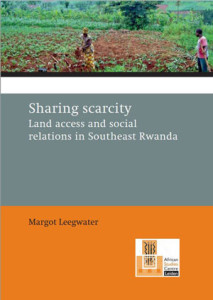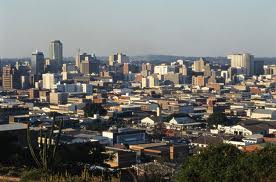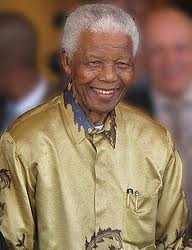The Open Library of Humanities
 The Open Library of Humanities (OLH) is a charitable organisation dedicated to publishing open access scholarship with no author-facing article processing charges (APCs). We are funded by an international consortium of libraries who have joined us in our mission to make scholarly publishing fairer, more accessible, and rigorously preserved for the digital future.
The Open Library of Humanities (OLH) is a charitable organisation dedicated to publishing open access scholarship with no author-facing article processing charges (APCs). We are funded by an international consortium of libraries who have joined us in our mission to make scholarly publishing fairer, more accessible, and rigorously preserved for the digital future.
The OLH publishing platform supports academic journals from across the humanities disciplines, as well as hosting its own multidisciplinary journal. Launched as an international network of scholars, librarians, programmers and publishers in January 2013, the OLH has received two substantial grants from the Andrew W. Mellon Foundation to date, and has built a sustainable business model with its partner libraries.
All of our academic articles are subject to rigorous peer review and the scholarship we publish showcases some of the most dynamic research taking place in the humanities disciplines today – from classics, modern languages and cultures, philosophy, theology and history, to political theory, sociology, anthropology, film and new media studies, and digital humanities. Our articles benefit from the latest advances in online journal publishing – with high-quality presentation, annotative functionality, robust digital preservation, strong discoverability and easy-to-share social media buttons.
Our mission is to support and extend open access to scholarship in the humanities – for free, for everyone, for ever.
Go to: https://www.openlibhums.org/
The School Of Life ~ Sociology – Alexis De Tocqueville
Alexis de Tocqueville was a 19th century French aristocrat with some crucial things to tell us about the strengths and weaknesses of that once-new and now widespread political system: democracy. Please subscribe here: http://tinyurl.com/o28mut7
If you like our films take a look at our shop (we ship worldwide): http://www.theschooloflife.com/shop/all/
Margot Leegwater ~ Sharing Scarcity: Land Access And Social Relations In Southeast Rwanda
 Land is a crucial yet scarce resource in Rwanda, where about 90% of the population is engaged in subsistence farming, and access to land is increasingly becoming a source of conflict. This study examines the effects of land-access and land-tenure policies on local community relations, including ethnicity, and land conflicts in post-conflict rural Rwanda. Social relations have been characterized by (ethnic) tensions, mistrust, grief and frustration since the end of the 1990-1994 civil war and the 1994 genocide. Focusing on southeastern Rwanda, the study describes the negative consequences on social and inter-ethnic relations of a land-sharing agreement that was imposed on Tutsi returnees and the Hutu population in 1996-1997 and the villagization policy that was introduced at the same time. More recent land reforms, such as land registration and crop specialization, appear to have negatively affected land tenure and food security and have aggravated land conflicts. In addition, programmes and policies that the population have to comply with are leading to widespread poverty among peasants and aggravating communal tensions. Violence has historically often been linked to land, and the current growing resentment and fear surrounding these land-related policies and the ever-increasing land conflicts could jeopardize Rwanda’s recovery and stability.
Land is a crucial yet scarce resource in Rwanda, where about 90% of the population is engaged in subsistence farming, and access to land is increasingly becoming a source of conflict. This study examines the effects of land-access and land-tenure policies on local community relations, including ethnicity, and land conflicts in post-conflict rural Rwanda. Social relations have been characterized by (ethnic) tensions, mistrust, grief and frustration since the end of the 1990-1994 civil war and the 1994 genocide. Focusing on southeastern Rwanda, the study describes the negative consequences on social and inter-ethnic relations of a land-sharing agreement that was imposed on Tutsi returnees and the Hutu population in 1996-1997 and the villagization policy that was introduced at the same time. More recent land reforms, such as land registration and crop specialization, appear to have negatively affected land tenure and food security and have aggravated land conflicts. In addition, programmes and policies that the population have to comply with are leading to widespread poverty among peasants and aggravating communal tensions. Violence has historically often been linked to land, and the current growing resentment and fear surrounding these land-related policies and the ever-increasing land conflicts could jeopardize Rwanda’s recovery and stability.
Full text book: http://www.ascleiden.nl/news/sharing-scarcity
Civil Domains and Arenas in Zimbabwean Settings. Democracy and Responsiveness Revisited – DPRN Five
Introduction (written 2008 – first published 2010)
A popular remedy for Africa’s predicament is the promotion of ‘civil society’. It is conventionally seen as a collection of various kinds of non-profit bodies separate from the state and business sector. It is framed within a consensual model of politics, and thus capable of working in ‘partnership’ with both state and business sectors in pursuit of common interests, particularly ‘development’ and ‘democracy’ [i]. Since the late 1970s donors sought substitutes for the state in the private sector. In the 1980s they discovered the virtues of the non-profit branch of this sector. They tasked older entities such as mission hospitals and newly-arrived non-governmental organisations (NGOs) with providing a range of services, from schooling and healthcare to small enterprise promotion, that were once considered responsibilities of the public sector.
Under their neoliberal paradigm, donors have tried to raise the nonprofit sector’s political status. Beyond service provision, its main task is to counter government power. Here civil society is cast as a hero, who routinely calls a villainous state to account. Yet this model of ‘civil society’ has evoked controversy. Questions have arisen about the effects of NGOs not only as substitute providers of basic services, but also as vehicles of public politics, effectively substituting for opposition political parties [ii]. A number of writers have called attention to ‘the obvious: that civil society is [largely] made up of international organisations’. Some argue that the whole concept of ‘civil society’ as promoted by outsiders does not match African sociological or political realities, and can ultimately weaken, rather than strengthen the power of common citizens. There are calls, in short, for a re-think. Read more
Post-Apartheid South Africa And The Crisis Of Expectation – DPRN Four
The collapse of the apartheid state and the ushering in of democratic rule in 1994 represented a new beginning for the new South Africa and the Southern African region. There were widespread expectations and hopes that the elaboration of democratic institutions would also inaugurate policies that would progressively alleviate poverty and inequality.
Fourteen years into the momentous events that saw Nelson Mandela become the president of South Africa, critical questions are being asked about the country’s transition, especially about its performance in meeting the targets laid down in its own macro-economic programmes in terms of poverty and inequality, and the consequences of the fact that the expectations of South Africans have not been met.
At a general level the euphoria of 1994 has come up against deepening inequality, rising unemployment, the HIV pandemic and bourgeoning violent crime. The latter has led one writer to conclude that South Africa is ‘a country at war with itself’ (Altbeker 2007).
South Africans have trusted democracy with the hard task to deliver jobs, wealth, healthcare, better housing and services to the people. But now that all of this is slow in arriving, there is growing disquiet and increased community protests that have sought to challenge the government on the pace of service delivery.
It is the level of what we have labelled a crisis of expectation that this paper speaks to. It looks at what under lies this crisis of expectation and what are the potential consequences. Read more
Het ontrafelen van criminele carrières van hoog-risico jongeren
“Stel je voor dat je wordt geboren in een sociaal achtergesteld gezin. Het opleidingsniveau van je ouders is laag en hun inkomen evenzeer. Daarbij zijn alcoholmisbruik, drugsgebruik en werkeloosheid bekende problemen in jouw familie. Door deze omstandigheden zijn je ouders niet instaat om voldoende te investeren in jouw toekomst. Al sinds de basisschool heb je het gevoel dat je achterloopt. Huiswerk kost veel moeite en je cijfers zijn laag. Op de middelbare school verandert er niet veel. Je cijfers blijven laag en je wordt vaak de les uitgestuurd.
Buiten school gaat het ook niet echt goed. Naar mate je pubertijd vordert maak je steeds meer ruzie met je ouders en hang je voornamelijk rond op straat. Op gegeven moment ga je te ver en word je gearresteerd door de politie. Geen probleem denk je in eerste instantie. Veel van je vrienden zijn ook een keer gearresteerd en je hebt niet het idee dat dit grote gevolgen zal hebben. In de maanden die volgen word je nog een paar keer gearresteerd en uiteindelijk besluit de kinderrechter dat je naar een besloten jeugdinstelling moet. Hier aangekomen tref je andere jongeren aan die vergelijkbare problemen hebben. Tijdens je verblijf in de jeugdinstelling worden je gedragsproblemen behandeld en krijg je laaggeschoold onderwijs. Rond je 17de levensjaar loopt je verblijf in de instelling teneinde en loop je de poort uit naar een volwassen leven.”
Introductie
De situatie die hierboven wordt geschetst is karakteristiek voor een kleine groep jongeren in Nederland die al vanaf jonge leeftijd grote problemen kennen op verschillende domeinen. Het doel van dit artikel is om de bevindingen van het proefschrift Disentangling Criminal Careers for Disadvantaged Youths op een toegankelijke manier te beschrijven zonder afbreuk te doen aan de gecompliceerdheid van de conclusies. Het doel van het onderzoek was om een conceptueel en empirisch raamwerk te ontwikkelen om de effecten vast te stellen van een aantal verschillende facetten, voor jongeren met een “achtergestelde jeugd”, op uitkomsten gedurende het volwassen leven. We onderzochten of de cognitieve en sociale vaardigheden, het opleidingsniveau en contact met justitie de volwassen sociaal-economische uitkomsten beïnvloedden. Tegelijkertijd erkenden we dat transities gedurende volwassenheid, zoals transities van en naar werk en intieme relaties, de daaropvolgende volwassen uitkomsten kunnen beïnvloeden. De focus van het proefschrift ligt op het verklaren van de uitkomst “criminaliteit” voor adolescenten en volwassenen, maar verschillende andere sociaal-economische uitkomsten worden ook onderzocht. In het bijzonder onderzoeken we ook arbeidsmarktuitkomsten, uitkeringen, drugsgebruik en intieme relaties.
In totaal worden er ongeveer 4.000 jongeren jaarlijks geïnstitutionaliseerd in een straf- of jeugdzorg instelling in Nederland (CBS, 2013). Op basis van hun vroege contacten met justitie en/of hun gedragsproblemen, kunnen deze jongeren worden beschouwd als behorende tot een kansarme subgroep van jongeren die een hoog risico hebben voor het plegen van criminaliteit, het vaak lastig hebben op de arbeidsmarkt en relatief vaak de ontvangers zijn van sociale uitkeringen (van der Geest, 2011; Mesters, van der Geest en Bijleveld, 2014; Verbruggen, 2014). Tijdens hun verblijf in de instelling worden ze behandeld voor hun gedragsproblemen en krijgen ze laaggeschoold onderwijs aangeboden. In hun late tienerjaren verlaten deze jongeren vertrekken meestal de instelling en en begint hun “volwassen” leven. Gezien hun moeilijke jeugd hebben ze vaak moeite met deze transitie naar volwassenheid (Osgood, Foster, Flanagan en Ruth, 2005). Ons doel is om aan te geven op wat voor soort kenmerken van deze jongeren interventies het beste kunnen aangrijpen om de volwassen sociaal-economische uitkomsten van deze jongeren te verbeteren.
De ontwikkeling van een raamwerk dat in staat is om de sociaal-economische uitkomsten voor volwassenen te verklaren in termen van vroeggemeten factoren en andere uitkomsten gedurende het volwassen leven is een uitdagende taak. In dit proefschrift proberen we deze puzzel stap voor stap te benaderen. Het raamwerk is gebaseerd op inzichten uit de criminologie, sociologie, economie en psychologie. De theorieën die uit deze disciplines naar voren komen vormen het conceptuele raamwerk dat wordt vertaald naar een empirisch model in wiskundige formulering. Deze vertaling maakt het mogelijk om het conceptuele raamwerk te testen met behulp van observationele gegevens en econometrische methoden. Read more





